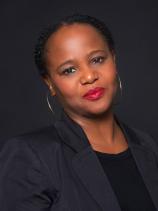Reading Group Guide
Discussion Questions
The Dew Breaker

1. Why does Danticat use a number of different narrators to tell the story? How do these shifting points of view affect the way the story is told? How do they affect the way readers absorb and understand the events described in the book?
2. Why does Danticat begin The Dew Breaker with Ka's father's confession and then return, near the end of the book, to the moment, some thirty years earlier, when he committed his last crime? Is this way of structuring the events of the story more powerful than a chronological telling would be?
3. Ka says that her father, "if anyone could, must have already understood that confessions do not lighten living hearts" (p. 33). Why would he understand this better than others? Why then does he confess his secret past to his daughter? What role does guilt—his own and that of others—play in this book?
4. For her sculpture of her father, Ka chooses "a piece of mahogany that was naturally flawed, with a few superficial cracks along what was now the back. I'd thought these cracks beautiful and had made no effort to polish them away, as they seemed like the wood's own scars, like the one my father had on his face" (p. 7). What does this passage suggest about the differences between Ka and her father? In what ways has he tried to "polish away" his own scars?
5. What do the stories of Eric, Michael, Dany, Nadine, Beatrice, and Freda add to the book? In what ways are their lives intertwined with Ka's father? What effect has the "dew breaker" had on them?
6. Claude tells Dany that he is "the luckiest fucker alive," because in killing his father, he has "done something really bad that makes me want to live my life like a fucking angel now" (p. 119). Does The Dew Breaker seem to suggest that people can redeem themselves even after committing acts of horrific violence? How might this conversation affect Dany's feelings about his landlord, the "dew breaker," the man who killed his own mother and father?
7. Beatrice tells the reporter Aline, "Everything happens when it's meant to happen" (p. 125). Can this axiom be applied to the book itself? Do things in the book happen when they are "meant" to happen? What significant events in the unfolding of the characters' lives seem fated?
8. In what ways does The Dew Breaker, though a work of fiction, make the reality of life under the Duvalier dictatorship more vivid and emotionally charged than might a work of history or investigative journalism?
9. Some regard the preacher's outspoken sermons against the Duvalier dictatorship as selfish. "Not all the church members agreed with the preacher's political line. . . . Some would even tell you, 'If the pastor continues like this, I leave the church. He should think about his life. He should think about our lives" (p. 186). His own sister, Anne, wonders "What made him think he could denounce the powerful on the radio, of all places, and not risk the safety of those he loved?" (p. 215). Is the preacher right in speaking out against the regime, even when it puts his loved ones and his congregation in danger?
10. After the preacher wounds "the fat man," he thinks, "at least he left a mark on him, a brand that he would carry for the rest of his life. Every time he looked in the mirror, he would have to confront this mark and remember him. Whenever people asked what happened to his face, he would have to tell a lie, a lie that would further remind him of the truth" (pp. 227–28). What effects, both good and bad, does this last act of violence have on the "dew breaker"? How does it change him?
11. At the end of the book, as Anne is telling her daughter more about her father's past, Ka hangs up, leaving Anne with a recording telling her to "hang up and try again" (p. 241). Why has Danticat chosen to end The Dew Breaker in this open-ended way? Will Anne try again to explain her husband's past? Will Ka ever forgive him? Should he be forgiven?
12. Why does Ka's mother marry the "dew breaker"? Why does she stay with him after learning the truth about the identity of his last victim? What does the reconciliation between Ka's parents—to each other, and to the truth—tell us about the nature of forgiveness, of recovery, and of healing? And how does the last section of the story told in The Dew Breaker bring us back full circle to the beginning?
13. In what ways is Ka's father a complex character? What motivates him to join the "Volunteers"? How does he rationalize killing the preacher? What does he wish he could give the boy who brings him cigarettes as he's waiting to arrest the preacher? What does he enjoy about the pain he inflicts on his prisoners? How should he be judged, finally?
The Dew Breaker
- Publication Date: March 9, 2004
- Genres: Fiction
- Hardcover: 256 pages
- Publisher: Knopf
- ISBN-10: 1400041147
- ISBN-13: 9781400041145








